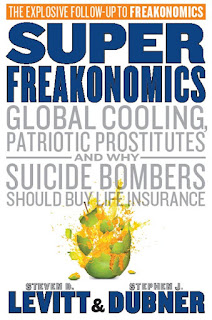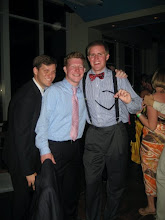
Book In Review
Book: SuperFreakonomics
Author: Steven Levitt and Stephen Dubner
Genre: Business - Economics
Review: Have you ever picked up a book, read it, and then felt like your life has found meaning or a new path? When I read Levitt and Dubner’s first book, Freakonomics, I decided to follow in Levitt’s footsteps and become an econ major. The second book in the series, SuperFreakonomics, has the same effect. Steven Levitt and Stephen Dubner created a page turning miracle to the science of economics.
Levitt and Dubner use the art of Behavioral Economics to explain, legitimize, and/or compare things in our world in ways that few people ever think. The two authors investigate the business of prostitution and relate it to your department-store Santa Claus, why suicide bombers need life insurance, apathy and altruism, global warming, as well as countless other examples. It is supposed to be controversial. Levitt and Dubner explode through writing barriers by talking about such unethical things as a means to explain how economic practices occur all around the world everday. The greatest facet of this book is its ability to shine a new light on the so-called “boring” science. Superfreakonomics will change the way you think of the world as well as economics. It is a must read.

Hey Nils - check out mmconrad.tumblr.com vs. mattchatter.tumblr.com. They are both maintained by Conrad, but he divides his content into two distinct arenas.
ReplyDelete